Most men battle with acne at some point in their lives. It can be unsightly, embarrassing, and even cause scarring over time.
If you do suffer from acne then, today’s guide is for you as it’s all about how to work toward getting clearer skin. As a bonus, it also works for men who already have clear skin to maintain that acne free face.
What Exactly Is Acne?
Acne is your skin’s reaction to a naturally occurring bacteria that’s on the surface of the skin. Everybody has these kinds of bacteria, so the myth that people who suffer from excessive acne are somehow less clean, is just that, a myth unfounded by science. In the case of the acne sufferer, Propionibacterium acnes is the one that will activate on the skin from its normally dormant state causing irritation and then a pimple. More specifically, it’s often hair follicles that become clogged with dead skin cells and oils and then become inflamed, not a good thing!
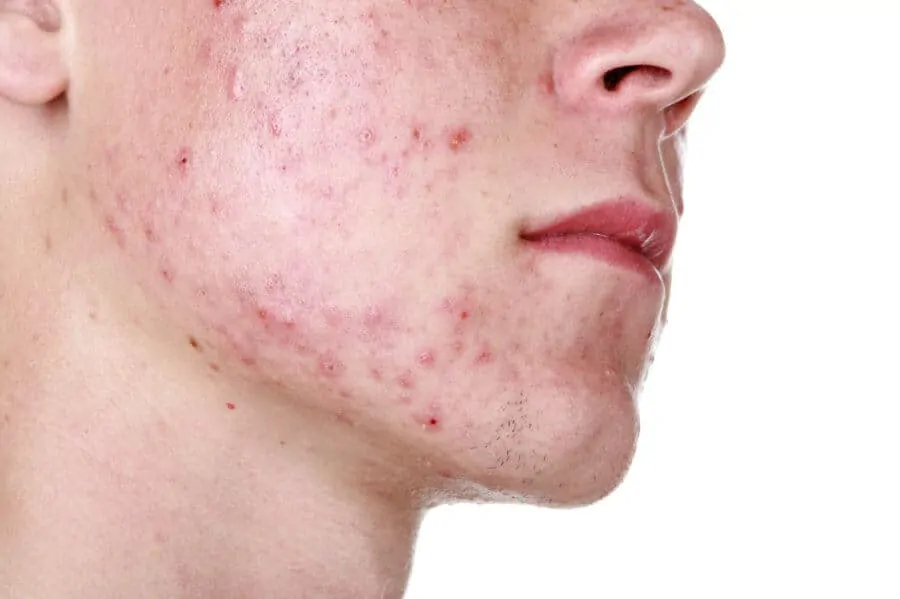
Acne can take different forms depending on how the skin has been irritated such as blackheads, whiteheads, or standard pimples. Hormones and genetics do both play a sizable role in whether or not you’re going to suffer from acne so there is a certain element of luck involved. However, the best way to stop acne from forming is to make sure that your skin is healthier, in the first place. Of course, determining whether or not you’re more prone to excessive acne is probably going to be unnecessary. After all, if you are more prone, you’re likely going to have found out about it already.
In general though, before you embark on any sort of treatment plan, it’s going to be a good idea to pay a visit to your dermatologist. As with most medical conditions, it’s best to get a professional opinion and see if you do have a more specific type of acne that is best treated in a specific way. For most men though, acne is a condition that can be fairly easily treated with topical over-the-counter products.
One additional note here, pay attention to the ingredients in the products you purchase. Some may claim to be good for you but based upon thec omposition of your own skin, they can have ingredients that could react negatively. So if step one is consulting a dermatologist and figuring out what products are right for you, step two would be beginning and maintaining a skincare routine. Starting and maintaining a routine is probably going to be the single best thing you can do for your skin in the long term.
Key Components to A Good Skincare Routine
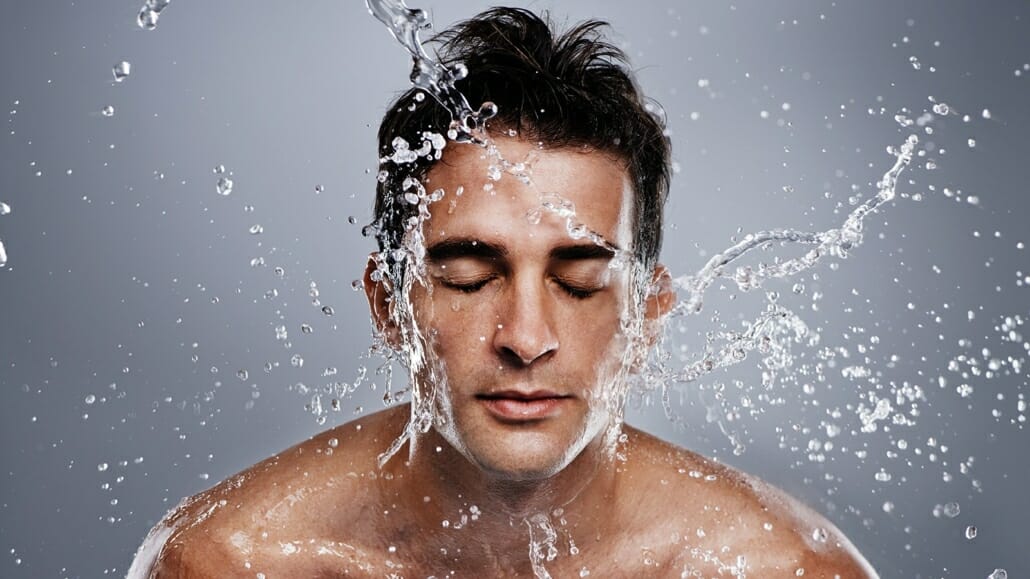
1. Cleansing
Using a cleanser to remove excess dirt, grime, oil, bacteria, and other substances on the surface of the skin is going to be helpful. You should try to cleanse both in the morning and the evening. Cleansing alone probably isn’t going to be enough to keep skin that’s already excessively acne prone from developing more pimples but it’s a good first step and for those who only suffer from a regular amount of acne, cleansing will also go a long way.
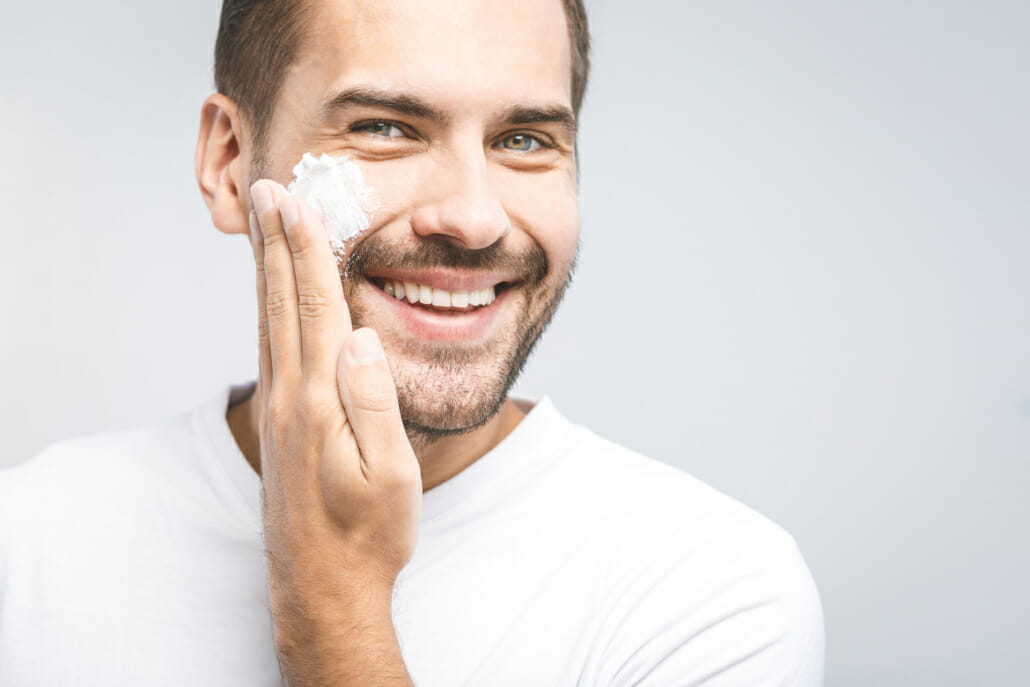
2. Moisturizing
Moisturizing after cleansing may seem counterintuitive at first, especially to those with oily skin, after all, if you’ve just removed moisture from your skin by cleansing why would you want to add it back? Well, simply stated, you’ve removed the dead skin cells, bacteria, and other nasty things from the surface of the skin but you’ve also removed the necessary amount of natural oils that your skin has to keep it healthy.
Thus, adding back some good moisture is going to be beneficial and if you do have more oily skin, if you don’t moisturize, your body is probably going to overcompensate and produce more oil than it would need to make up for that lost moisture so you’ll probably be even more prone to acne thus moisturizing will be your best bet. And while moisturizing is key, especially for those areas that are affected by shaving your face, you shouldn’t only localize it there. Make sure that you moisturize your entire face. Moisturizing is also a great opportunity to add a product that contains a bit of SPF to your routine.After all, a bit of extra sun protection is never a bad thing.
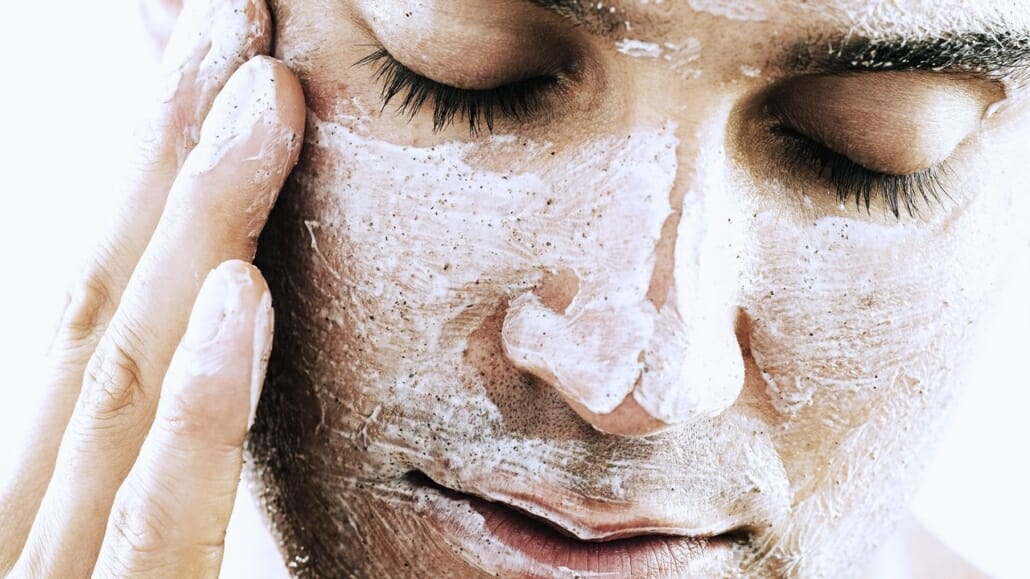
3. Treating the Skin
For acne-prone men, this is is a two-fold process. The first part here is to exfoliate or use a product that will remove skin cells and buildup in the pores and the second part is to treat the skin with a product that will minimize the amount of bacterial growth on the surface of the skin. To focus in a bit more on exfoliation, there are two main kinds; physical exfoliation and chemical exfoliation.
Physical exfoliation involves products that use granular particles to actually physically scrub the surface of the skin to remove dead skin cells. While this process can leave the skin feeling exceptionally smooth, it’s also easier to over exfoliate when using a physical product. This will create micro tears in your skin which may harbor more bacteria over time. Chemical exfoliation, meanwhile, uses, as you might have guessed, chemicals to remove these dead skin cells. For advanced cases of acne, it may actually be wise to use both a physical and a chemical exfoliant but again, consult your dermatologist if you think this might be the appropriate case.

4. Diligence in your Routine
It’s not going to be good enough to do the first three steps only a few times a week.You have to be diligent about this process and make sure that you’re doing all the steps as much as necessary. In most cases, twice daily, once in the morning and once in the evening.
How to effectively choose skincare products
It can be a serious drag on both your wallet and your time to find a product that’s right for you. The main two things you’ll want to try to get better at are reading product reviews online for key information and also reading the ingredient lists of each product to know what to look for. Once you know how to read product reviews and product labels effectively, you’ll be able to find products that are right for you that much easier. Also, you’ll probably find that both expensive and inexpensive products are often using the same ingredients so you might even be able to save a little bit of money in the process.
Acne-Fighting Ingredients
Salicylic Acid
So then, let’s go over some of the main active ingredients in acne fighting products starting with salicylic acid. This is also called beta hydroxy acid or BHA and it’s a chemical exfoliant that’s a derivative of aspirin. It has antimicrobial and anti-inflammatory properties that can help unclog your pores. Salicylic acid is also recommended for razor burn and ingrown hair sufferers for the same reason so it can also be used as part of a shaving routine.
AHA & BHA
These hydroxy acids are both highly effective for deep exfoliation. AHA and BHA are quite similar but overall, BHA is just a little bit less aggressive.
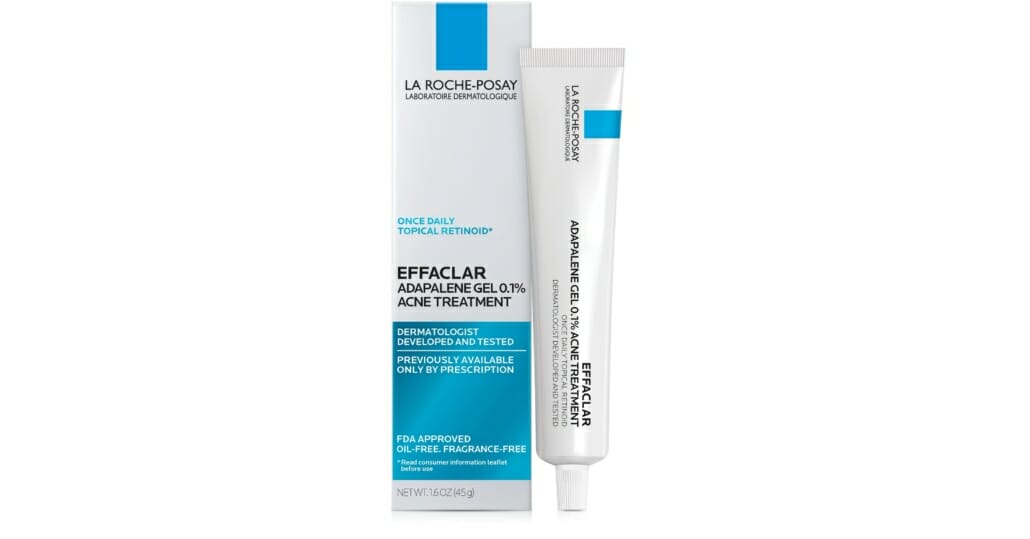
Retinoids
This is the term for the family of powerful anti aging molecules derived from vitamin A. Retinol is the most common marketing name of this compound but it can also be listed by various other names such as retinol palmitate, retinaldehyde, or various others. As an antioxidant, it tells old or damaged cells to act like normal ones and is noted to have anti acne benefits. For some users, in addition to its regular anti-aging properties, retinol can be difficult for some men to tolerate, however, so it’s best to build up your use of this product slowly over time. Retinol is available over-the-counter in lower concentrations and you can also get a prescription if you need something in a higher concentration. One more tip about retinoids is that they are best to be used at night because they can make the skin more susceptible to damage from the sun.
Benzoyl Peroxide
This is a classic anti acne ingredient; It works to reduce the acne causing bacteria on the skin and because it’s often found in high concentrations in some products, as much as five or ten percent, it can irritate the skin of some men. So as with retinol, it’s best to consult a dermatologist or start with a smaller or lower dose and work your way up over time as necessary.
Sulfur
Of course, you may be aware of it because of its famous smell which is similar to rotten eggs and therefore, you wouldn’t think it would be a great choice for a product that’s going on your face. However, sulfur is known for its acne fighting inflammation reducing and exfoliating properties so it’s often found in soaps and masks and other similar products where this famous smell is minimized.
Niacinamide
A product that hasn’t traditionally been a part of many anti acne regimens is niacinamide, however, the product is anti-inflammatory, antimicrobial, and sebostatic which means it helps reduce surface oil on your skin. Furthermore, niacinamide is pH neutral which means it’s less irritating to your skin than other common acne fighting ingredients would be. It can also help to reduce acne barring the appearance of fine lines on your face and hyperpigmentation, otherwise known as blotchiness.
Azelaic Acid
It is a highly effective antioxidant known for its ability to reduce redness and acne in the skin by killing bacteria responsible for inflammation. Also, it’s more gentle on the skin than other exfoliants can be.
General skincare considerations related to acne
1. Many skincare products can relieve acne but some can also exacerbate it.
For example, you shouldn’t use any products on your face that have alcohol or fragrances in them. Alcohol is often used as an ingredient in many toners because it feels bracing to the skin but it’s also a known irritant so it can make acne worse. Similarly, many fragrances can also be irritating to the skin. On a related note, don’t buy a product simply because its label says that it’s good for fighting acne; as we’ve said before, making sure that you’ve read the ingredients list to know what’s good and not good for you is going to be the key here.
2. Expensive does not always mean better.
Don’t assume that the more expensive acne fighting products are automatically going to be better. After all, the principal active ingredients that fight acne are mostly inexpensive so anything that has a high markup is mostly just going to be marketing.
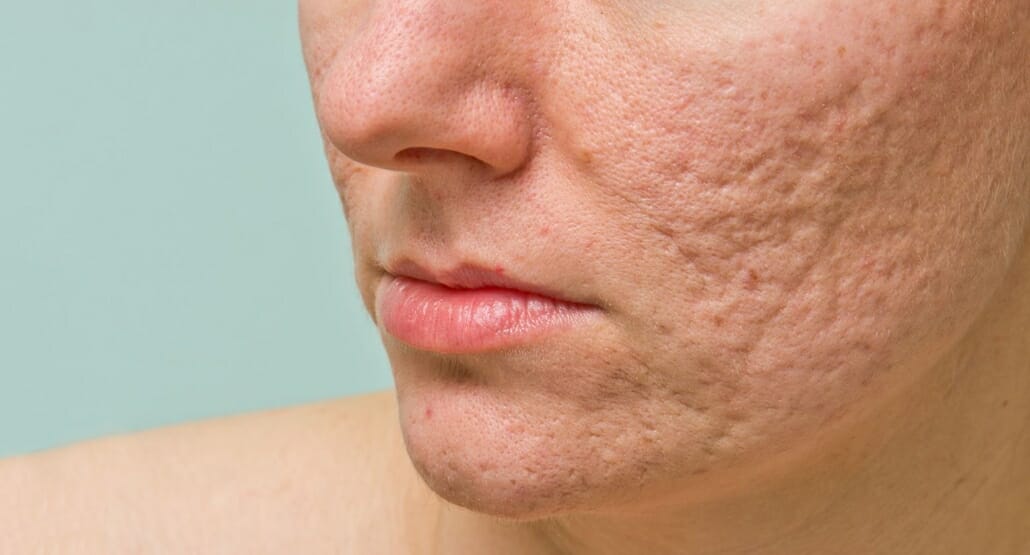
3. Introduce products into your routine slowly.
This is so that you don’t overwhelm or irritate your skin. As some men will naturally have more sensitive skin than others, some might be able to exfoliate and treat more aggressively on a daily basis whereas some could only do it a few times a week.
4. What works for others might not work for you.
Everyone’s skin, diet, genetics, and specific needs are different so a skincare routine that has worked wonders for one man isn’t necessarily going to automatically work for another. It’s important that you consider all of the factors that we have outlined here today before you decide on what skincare routine to use.
5. Do not expect immediate results.
Approach it with patience and persistence. After all, not only are there many products on the market so you might have to go through a process of trial and error but even then, once you’ve found products that are good for you, they can still take time to work at full effectiveness. Most products and dermatologists will recommend that you allow about six to eight weeks for products to really work as best as they possibly can. We know this can seem like a bit of a long time but once you get up to speed with your skincare routine and everything is working properly, it will definitely be worth it.
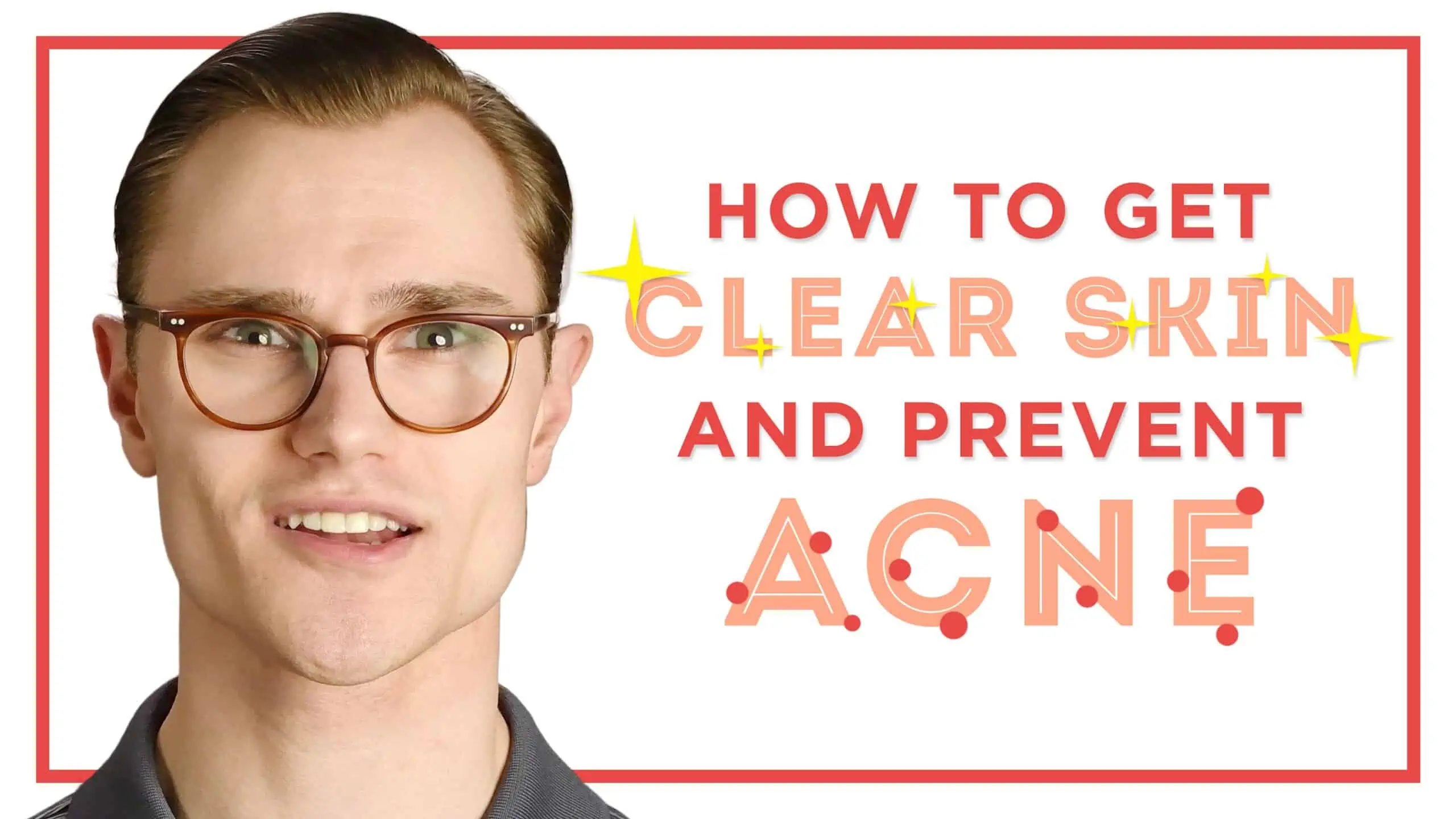
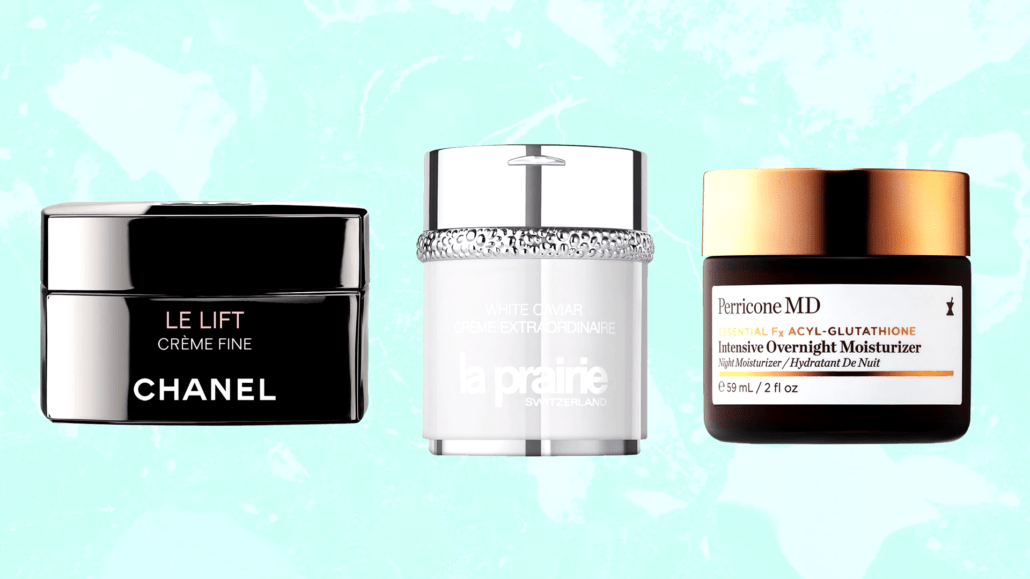
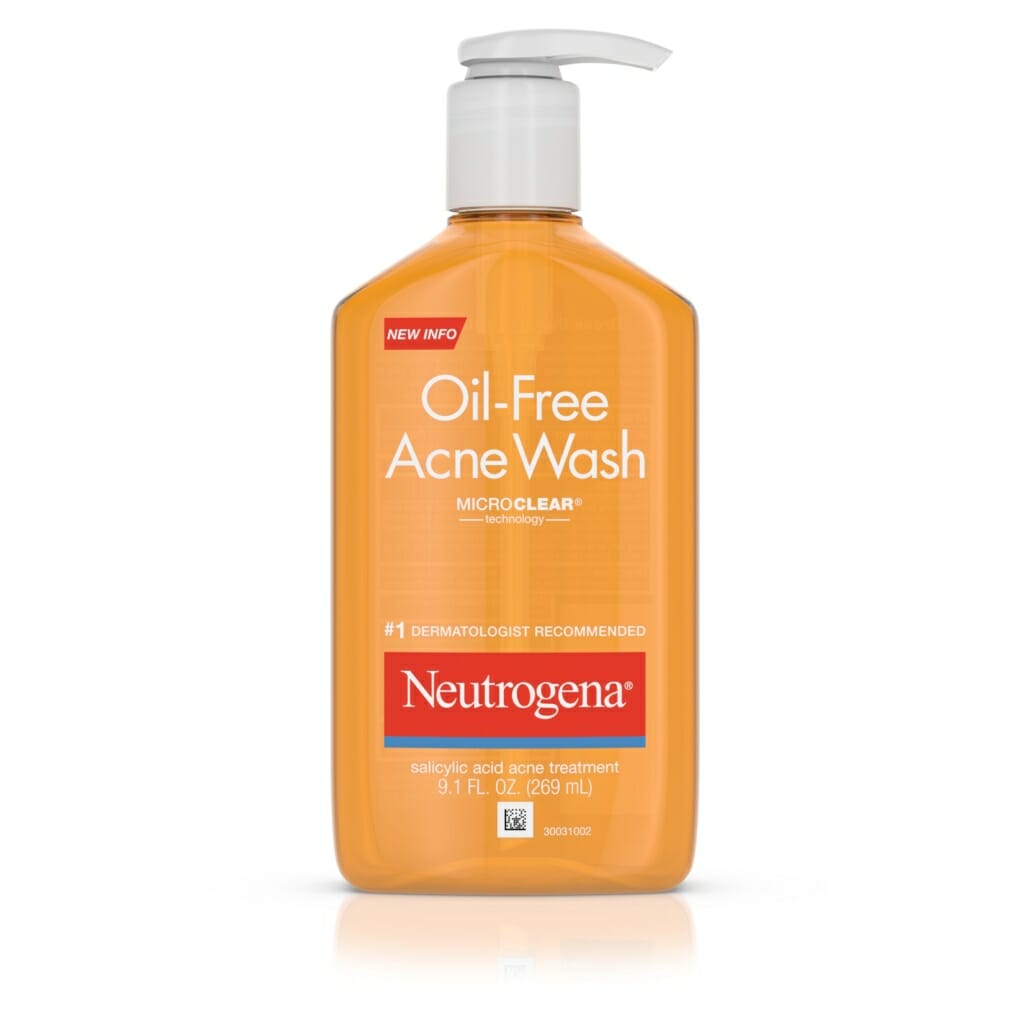
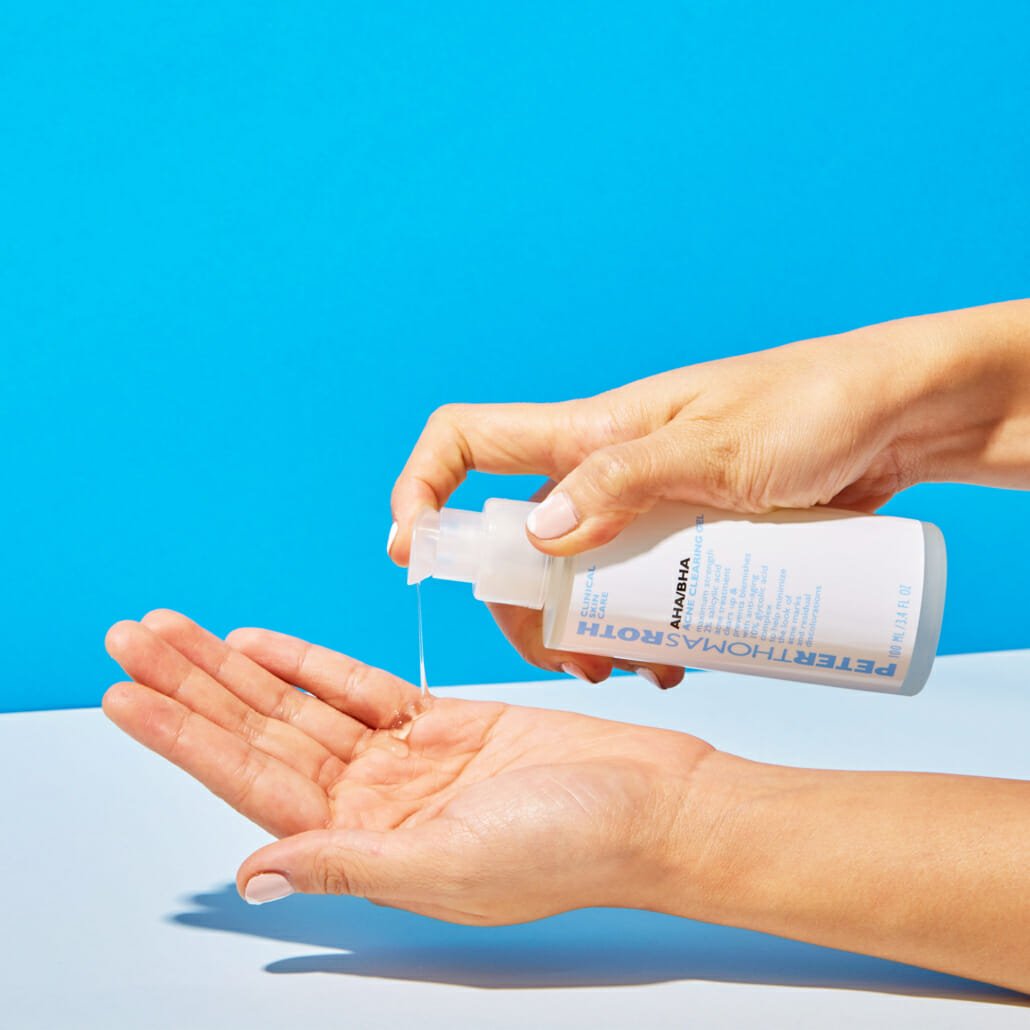
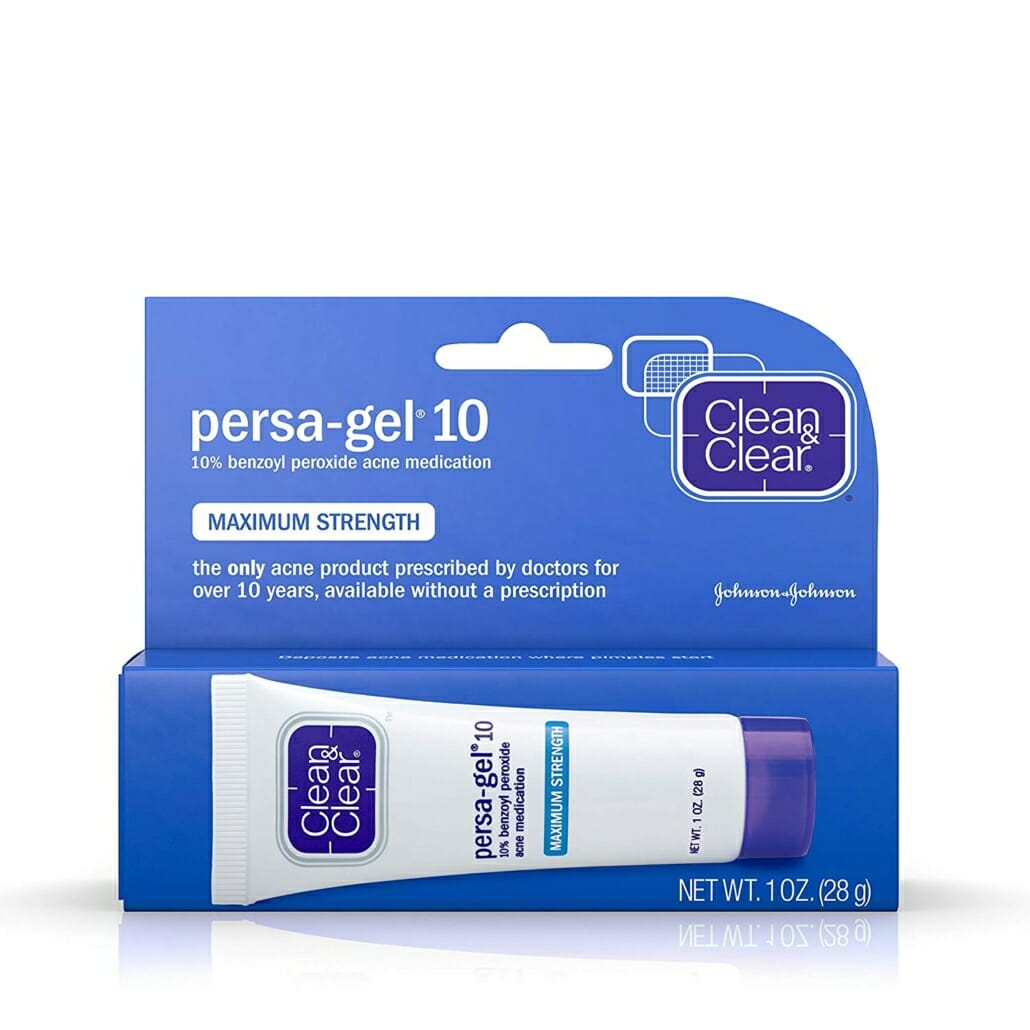
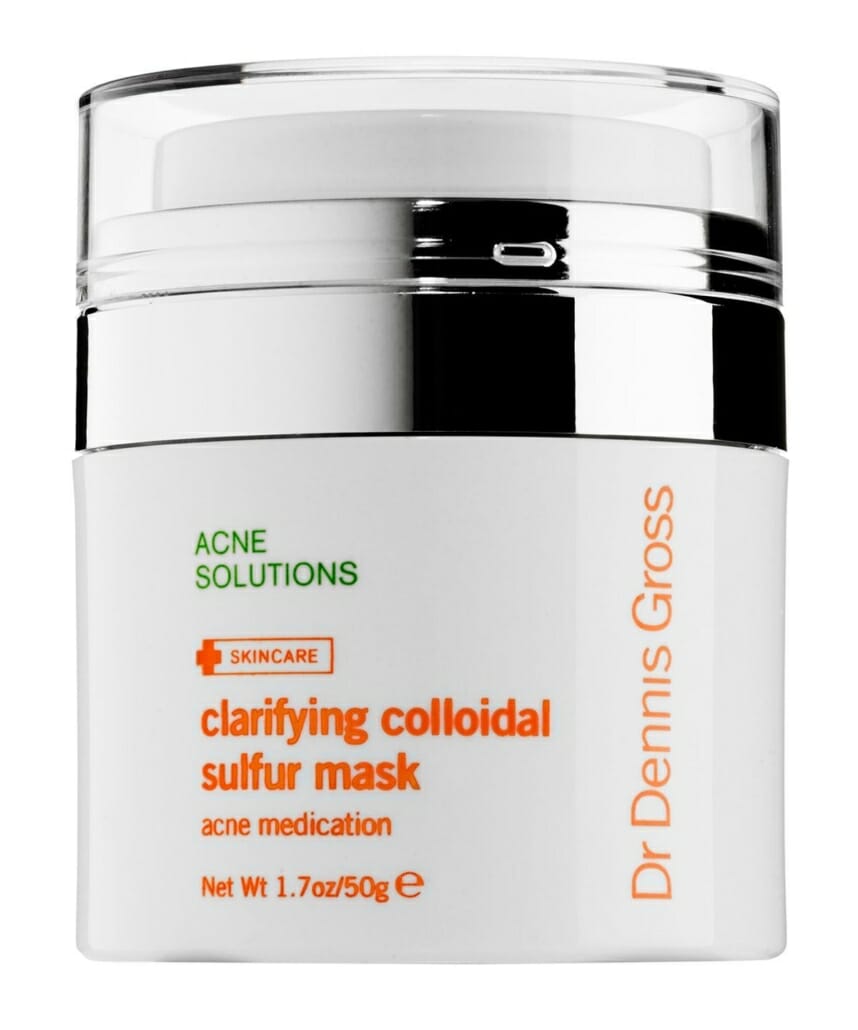
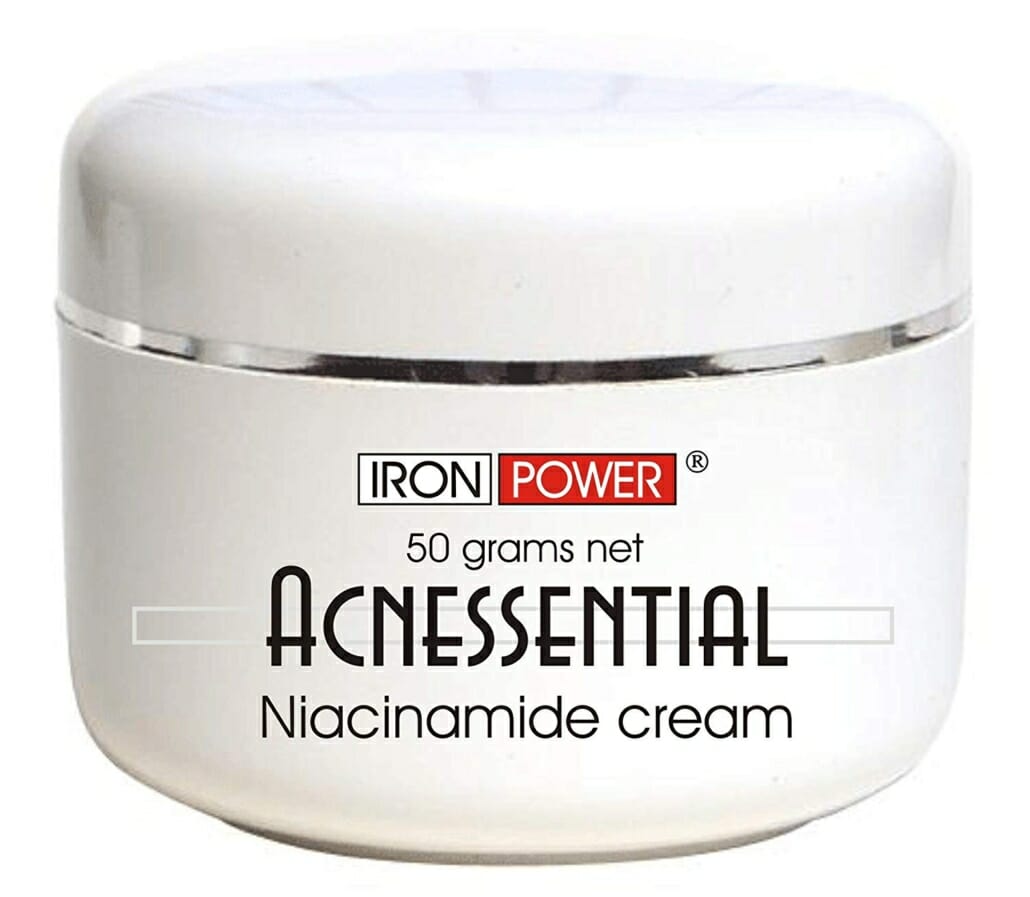
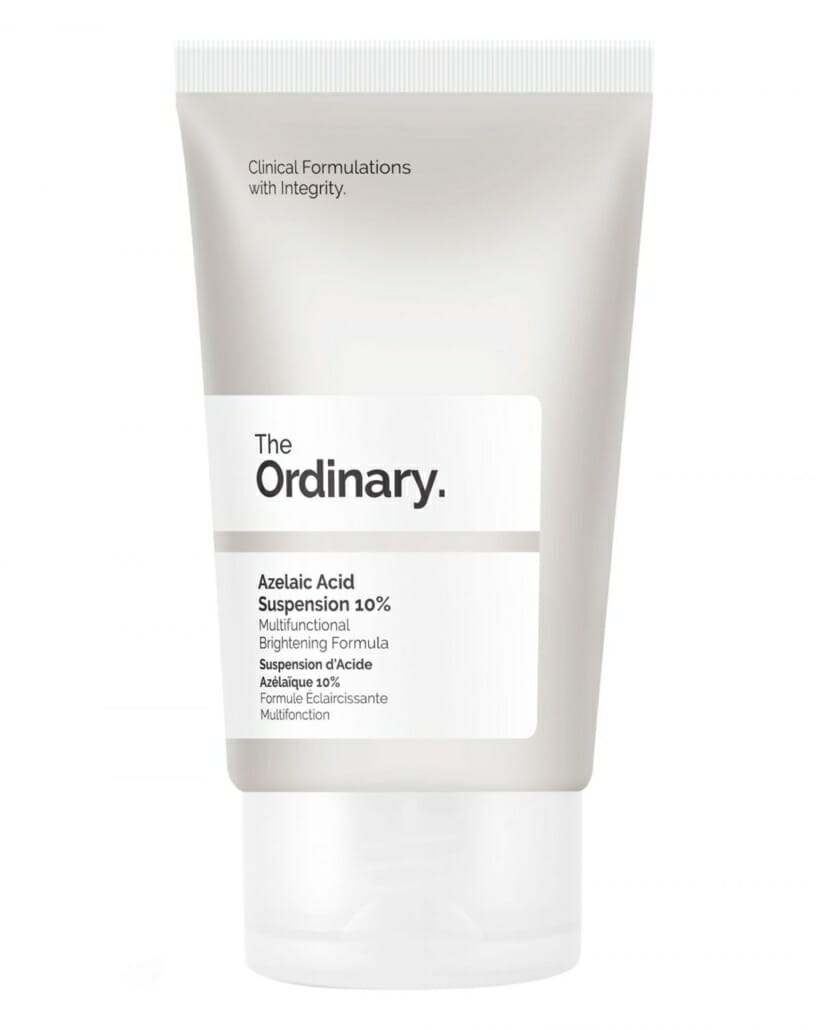
What eventually helped me — but really helped me — to win my heretofore losing battle against acne was the advice of a wonderful doctor, who, noticing the horrible boils on my back, advised me to get tested for sugar and alcohol immediately. Those boils, he said, were a classic sign of impending diabetes. So, I tested myself and, sure enough, I had a blood-sugar problem. From then on I cut sugar and alcolhol, as well as white flour, potatoes, etc., out of my diet. What a difference! I started looking human instead of like a walking pepperoni pizza. I would advise anyone who can’t seem to get rid of this horrible condition to seriously consider being tested for sugar and alcohol. It could do wonders for your quality of life — and as many of you may be aware, the diabetic diet is, by itself, extremely healthy. (And one last thing, it’s O.K. to have some cake and champagne at a wedding or on New Year’s Eve — just don’t overdo it.)
Thanks for sharing your story, JEA. We’re glad you found the solution to your troubles!
So exfoliating is still recommended for people that don’t have acne-prone skin? I am assuming that when one exfoliates they don’t cleanse on the same day as well? I am 15 years old and although I don’t have too many skin problems, I can sometimes get pimples (puberty probably), however I am mostly looking for a way too get clearer skin.
Daniel,
You want to use a light cleansing product every day whilst only using an exfoliating product a couple times a week. Just to help remove any dead skin/oils that your daily cleansing product doesn’t get. Brickell makes a free (pay 6 or 7 dollars for shipping) sample pack that gives you all the products for a solid skincare routine. I am similar in the sense that I do not get acne either, besides the occasional blemish, but switching to a skincare routine that incorporates a cleanser as well as an exfoliant has aided in making my skin even clearer. That and drinking a lot of water. Hope this helps, and best of luck!
My son has a lot of acne! I didn’t know you should use a moisturizer after you cleanse your face to put good moisture back on your skin. I’ll keep that in mind and find a clinic I can take him to for a consultation.
I’m 43 and I’ve suffered from Acne since I was a teenager. It seems to run in cycles – I’d have clear skin for about a week, then 3 or 4 spotty weeks with lumps without head, or small pustles – so very annoying and depressing. I’ve tried all manner of over the counter washes and products and likely wasted a lot of money. I found out about salicylic acid a while ago and tried a couple of over the counter products again. It helped for a week or so, but the spots soon returned.
I watched a programme on TV which basically said over the counter products are not strong enough – Clearasil were even banned from advertising in the UK for false claims. They said only a trip to a GP or dermatologist was the way forward. However, around the same time, someone told me about a stronger salicylic acid cream called V55 Max, available on amazon. So I thought, okay, one last shot, then I’ll go to my GP if it doesn’t work.
Well, I bought it in May this year and after about a week, my acne cleared up and hasn’t been back, apart from one spot IIRC. Incredible result. It wasn’t cheap – about £16 for a small tub, however, a little goes a long way and I’m still on that first tub now.
I still use a medicated face wash as well as Nivea moisturiser alongside the V55 cream. I’m hesitant to stop using either in case I’ve somehow stumbled upon the holy trinity of face treatment.
I realise everyone’s skin is different, but I’d highly recommend this product. You have nothing to lose if it doesn’t work and everything to gain if it does.
Acne scars can be haunting even if you are teenagers or adults. Cool prevention tips to fight against acne scars.
I like what you said about expensive skincare products not always being better. My husband has been getting odd skin breakouts lately. We’ll have to take him to a dermatologist to see what we need to do.